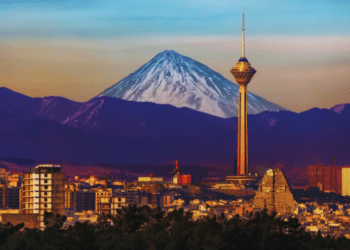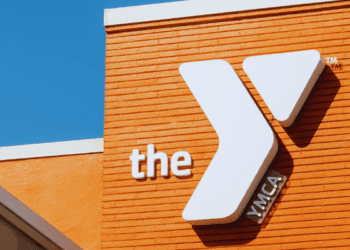MLI’s ground breaking papers on resetting the relationship between Aboriginal and non-Aboriginal Canadians continues to attract substantial media interest. On May 1, 2013 MLI released two papers; “New Beginnings: How Canada’s Natural Resource Wealth Could Re-shape Relations with Aboriginal People” by Ken Coates and Brian Lee Crowley, and “Canada and the First Nations: Cooperation or Conflict?” by Douglas Bland.
The following article appeared in major outlets across Canada including the Vancouver Sun, Calgary Herald, Edmonton Journal, Saskatoon StarPhoenix, Regina Leader-Post, Windsor Star, Ottawa, Citizen, Montreal Gazette, Canada.com, and GlobalNews.ca
Report warns of ‘catastrophic’ aboriginal uprising
Peter O’Neil, canada.com, May 1, 2013
OTTAWA — Canada faces a potentially “catastrophic” uprising unless aboriginal Canadians become full participants in natural resource extraction, a prominent think-tank warned Wednesday.
Former Canadian senior military officer Douglas Bland, who is now professor emeritus at Queen’s University in Kingston, Ont., pointed to a “direct action” threat this week by a B.C. First Nation to block a copper mine’s expansion as a small sign of the kind of backlash he’s suggesting.
Bland, in one of two reports on natural resource development and First Nations published by the Macdonald-Laurier Institute, argued that Canadians should take heed of the Idle No More movement that triggered cross-country protests earlier this year against federal government inaction on key issues.
“An idea that most Canadians would have seen as preposterous a year ago . . . is now very real,” he wrote.
“The possibility of a catastrophic confrontation between Canada’s settler and aboriginal communities, spurred not by yesterday’s grievances but by the central features and consequences of our national policies, have the potential to make such an uprising feasible if not . . . inevitable.”
Bland, a retired lieutenant-colonel and author of a 2009 book about a fictional armed aboriginal insurgency in Canada, said determined young “warriors” could cause huge economic damage by targeting pipelines, ports and key arteries.
“Unfortunately for Canada, the interwoven economic/national resources/transportation matrix is irreversibly vulnerable, as it presents targets that cannot be fully protected.”
He argued that the revolt, either “armed or unarmed,” could be far more organized and national in scope than sporadic and largely localized acts of violent resistance such as the armed standoff at Oka, Que., in 1990, the confrontation at Gustafsen Lake in B.C. in 1995, a clash between non-native lobster fishermen and the Burnt Church First Nation in New Brunswick in 1999, and the land dispute involving the Six Nations Confederacy in Caledonia, Ont., in 2006.
On Tuesday, the Wet’suwet’en First Nation threatened to shut down a $455-million expansion of the Huckleberry Mines Ltd. copper/molybdenum operation that’s located 123 kilometres southwest of Houston, B.C.
A news release didn’t cite its potential tactics, but did note that there is a travel access road and power transmission used by the company that crosses Wet’suwet’en reserve lands.
Chief Karen Ogen said none of the 230 full-time and 30 contract positions at the mine, nor any of the 70 new jobs to be created with the expansion, will go to members of her community despite numerous meetings with the company.
“The Wet’suwet’en chief and council were instructed by their members to take whatever action is necessary, including direct action and legal action, to stop further mine expansion,” the news release stated.
Huckleberry Mines Ltd. is 50-50 joint venture between Vancouver-based Imperial Metals Ltd. and a consortium of Japanese firms.
Huckleberry vice-president Randall Thompson said roughly 15 to 18 per cent of the company’s 270-person workforce are aboriginal, but they are primarily members of other First Nations communities near the mine. However, he said one recent contract involved members of the Wet’suwet’en First Nation.
He said the company was in negotiation with the band, but talks broke down after company was asked to give them “first right of refusal” on future contracts.
“The problem is, we have five first nations we have to deal with,” said Thompson.
He added that if the access road is blocked the mine would likely have to cease operations.
Chief Ogen said her First Nation expects first crack at mine contracts because it is the only one of the five with a road and power line crossing reserve territory.
She said the band will likely set up a toll road to charge workers and contractors heading to the site, but if no resolution is found she vowed more drastic action. “If we have to, the hydro lines will come down,” she vowed.
Brian Lee Crowley, executive director of the Macdonald-Laurier Institute, said the incident supports the concerns expressed in Bland’s paper.
“We think there are lots of examples of rail and road blockades, for example, that are potentially forerunners of much larger conflict if we do not get our act together,” he said Wednesday after presenting the papers at a news conference.
Assembly of First Nations National Chief Shawn Atleo welcomed as “timely” the two reports, but chose to focus more on the second paper, which stressed the need for First Nations to get better access to training, jobs and profit-sharing arrangements.
“I certainly welcome these reflections, it really helps put some focus and intention on the requirement for some bold and transformative action,” Atleo said.
“We should be learning from what happened in Oka, learning from what happened in Burnt Church, in Gustafsen Lake, in Caledonia.”
Despite the tension this week at the Huckleberry mine the think-tank’s authors portrayed B.C. as a model for the country because of the provincial government’s efforts to ensure that First Nations share in forestry and mining revenues.
But if more significant progress isn’t made Bland argued that key infrastructure from coast to coast is vulnerable.
SIDEBAR:
Former Canadian senior military officer Douglas Bland has listed potential targets across the country for a theoretical aboriginal uprising:
* Alberta: Oil and gas pipelines, pumping stations, refineries and coal-carrying railway systems;
* Saskatchewan: Pipelines, railways and key Trans-Canada Highway intersections;
* Manitoba: Any road and railway intersections would be vulnerable in Canada’s historic transportation hub, as well as hydroelectric facilities, transmission lines, and the pipeline that supplies Winnipeg’s entire fresh water supply;
* Ontario: The province’s major highways, including roads and bridges to the U.S.;
* Quebec: Hydro-Quebec power generating facilities and transmission lines, bridges near Montreal and Quebec City, highways along the St. Lawrence River, and highways to the U.S. border.
* Atlantic Canada: Road and railway approaches to key ports as well as hydroelectric transmission lines from Quebec.
*MLI note: versions of this article also appeared in the Vancouver Sun, Calgary Herald, Edmonton Journal, Windsor Star, Saskatoon StarPhoenix, Regina Leader-Post, Ottawa Citizen, and Montreal Gazette as well as Global News




